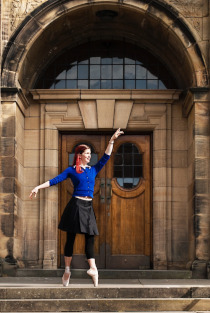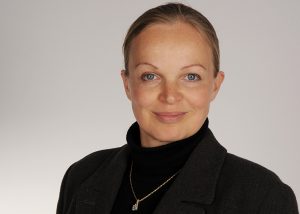Angus Forbes, University of California, Santa Cruz
Augmented Seeing and Sensing
The first half of this talk presents an overview of hybrid art-science methodologies that incorporate the activities of creative and technical practitioners. Interdisciplinary approaches integrate methods from multiple research communities and must mediate between the goals and practices of disparate disciplines. When successful, this creates opportunities to more effectively contextualize results for a wider range of audiences, and facilitates the generation of entirely new avenues of research. New sensing and surveillance technology enables ever more granular quantifications of human behavior, and provides insight into various aspects of human experience, bridging the social, emotional, kinesthetic, neurological, and biological. The second half of this talk explores contemporary techniques to access, analyze, and augment data, and introduces recent visualization and machine learning projects from the Creative Coding Lab at University of California, Santa Cruz that emphasize expressivity and critical perspectives.

Angus Forbes is an Assistant Professor in the Computational Media Department at University of California, Santa Cruz, where he directs UCSC Creative Coding. His research investigates novel techniques for visualizing and interacting with complex scientific information; his interactive artwork has been featured at museums, galleries, and festivals throughout the world. For the last five years (2013-2017), he has chaired the IEEE VIS Arts Program (VISAP), a forum that promotes dialogue about the relation of aesthetics and design to visualization research, and he is serving as the Arts Papers chair for ACM SIGGRAPH for 2018.
Emily Cross, University of Glasgow
The Embodied Neuroaesthetics of Dance
Perceiving others in action, whether in everyday contexts, such as seeing a commuter run to catch a train, or in highly refined artistic settings, such as watching a skilled dancer perform on stage, evokes automatic affective responses in an observer. The extent to which an observer’s prior experience with an observed action shapes his or her affective evaluation remains poorly understood. Better understanding of this relationship is essential for advancing knowledge about aesthetic appraisals of performance art, but also how we perceive and interact with others in a social world more broadly. In this talk, I discuss research that attempts to construct a more complete understanding of the impact of experience on action perception, affective responses, and aesthetic judgements. My team studies the execution and observation of complex, whole-body dance movements, using complementary behavioural and brain-based approaches, such as training interventions, functional neuroimaging and physiological measures of implicit affective responses. Overall, the results of work suggest that experience with a particular movement affects explicit and implicit affective judgments of that movement, as well as significantly modifies brain circuits engaged during action perception.

Emily Cross is a Professor of Social Robotics and social neuroscientist based at the Institute of Neuroscience and Psychology at the University of Glasgow in Scotland, where she directs the Social Brain in Action Laboratory. Using intensive training procedures, functional neuroimaging, brain stimulation, and research paradigms involving dance, acrobatics and robots, she leads a team who explores questions concerning how we learn via observation, motor expertise, and social influences on human-robot interaction. Emily received a BA in psychology and dance from Pomona College (USA), an MSc in cognitive psychology from the University of Otago (NZ) as a Fulbright Fellow, and a PhD in cognitive neuroscience from Dartmouth College (USA). She completed postdoctoral training at the University of Nottingham (UK) and the Max Planck Institute for Human Cognitive and Brain Sciences (Germany), and was previously an assistant professor at Radboud University Nijmegen (NL) and professor at Bangor University (Wales). Her research has been funded by an eclectic mix of national and international organisations, including the NIH (USA), Netherlands Organisation for Scientific Research, Economic and Social Research Council (UK), Ministry of Defence (UK), and the European Research Council.
Bettina Bläsing, Technical University Dortmund
Dance Expertise, Memory and the Body in the Brain
Multidisciplinary research combining theoretical and empirical evidence with knowledge acquired through practice in the performing arts has a high potential to broaden our knowledge and provide new insights into cognitive processes underlying the control, learning and perception of actions. Studies in dance expertise can teach us how cognition works under challenging real-world conditions in individuals with exceptional skills, and to what extent and by what means the performance of the human neurocognitive system is enhanced and modified through specific training. Dancers’ skills are based on a multitude of cognitive functions, in particular memory processes that support the learning, adaptation, modification, (re-)creation and improvisation of complex movement material. Embodied memories are closely tied to autobiographical history and constitutive for the sense of a consistent self, and thereby for creative processes in the arts. Dancers often claim to think with the body, and think of the body as an ubiquitous tool for cognitive processing, while cognitive scientists differentiate between the physical body and its representations on different neurocognitive levels. Findings from neurophysiological research support the idea of multiple bodies in the brain, indicating that different brain areas contribute to the perception of one consistent body as basis for an integrated bodily self. Multimodal body representations reflect the properties and functionalities of the physical body, body parts and sensory systems. Dancers (as well as artists and athletes) with special bodily or sensorimotor conditions can therefore be considered experts in their own rights whose individual constraints might yield exceptional solutions to given problems in motor action, social interaction and communication. Including their experiences and perspectives into the research in the field might help to push the limits of our understanding of the adaptive capacity of the human neurocognitive system.

Bettina Bläsing is lecturer in Rehabilitation Science at the Technical University Dortmund, Department of Music and Movement in Rehabilitation and Therapy. Her research interests include the control, learning and perception of complex movements and motor skills and neurocognitive expertise in dance. Bettina has studied Biology at Bielefeld and Animal Behaviour at the University of Edinburgh and completed her PhD with a dissertation on the control of insect locomotion. She worked as a postdoctoral scientist at the Roslin Institute (Scotland), at the Psychology Department of Leipzig University, and at the Wolfgang Koehler Primate Research Center, Max-Planck-Institute for Evolutionary Anthropology. From 2006-2018, she was researcher at the Department of Sport Science at Bielefeld University, responsible investigator at the Center of Excellence Cognitive Interaction Technology (CITEC) and member of the Research Institute for Cognition and Robotics (CoR-Lab). Bettina has been member of the Dance Engaging Science network (Motionbank) and has co-edited two books on the neurocognition of dance and memory in the performing arts.